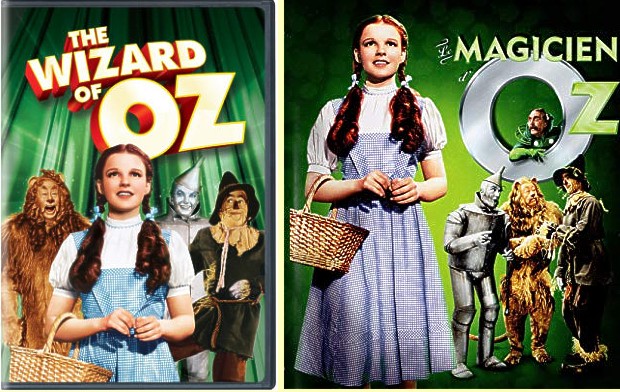Kansas Snapshots by Gloria Freeland - February 21, 2020
A gaffe a minute
In previous columns over the past seven years, I have occasionally mentioned that husband Art and I have been gathering the bits
and pieces of a story that will soon take the form of a book. Because the story is of equal interest to the citizens of a small
village in France, we knew we wanted to create a version in French as well.
Our plan seemed simple enough. We would complete the English version and then do a "first-swipe" French translation, using an
online application. Then we would need flesh-and-blood native French speakers to edit it to make the presentation friendly to a
French reader's ear and remove any terrible blunders.
We were feeling pretty good about this approach as several friends who are native French speakers have been involved in the project
for some time and were eager to help. Problem solved.
Or not!
Our focus on completing the version in our language caused us to overlook some of the obvious problems that lay ahead. For example,
an important moment in the story is when in 1950 two fellows from New York City showed up in tiny Morganville, Kansas to create a
radio program. The result was broadcast across the country just two days before Christmas and was titled "A Prairie Noel." A
literal translation of the title produces something equivalent to "A Meadow Christmas." But in the United States, the prairie
being referenced is not just any meadow, but refers specifically to the great inland area that stretches from the Mississippi River
to the Rocky Mountains.
Another problem occurred with a reference to the book "The Wizard of Oz." The word "sorcier" - sorcerer - or "enchanteur" - someone
who enchants others - would be a reasonable choice for wizard. But author Frank Baum's story about Dorothy from a farm in Kansas
was also published in France, and many people there are familiar with the book and movie as "Le Magicien d�Oz" - The Magician of
Oz. To choose one of the other words, despite being literally correct, would create a title the average French person would
not recognize.
Most people in France are used to buying their gasoline by the liter and measuring distances in kilometers. Telling them it was a
warm August evening where the temperature approached 90 degrees F might mean little. But when you say it was almost 32 degrees C,
they know they would appreciate cold drinks.
We should have been more prepared for this problem than we were because of an earlier situation we had encountered. One of the two
fellows from New York who produced "A Prairie Noel" created a short version of the story in 1955 for a book he wrote. He intended
it to be an easy and sort of "folksy" read, so it was rife with expressions that were readily understood at the time, but now have
been largely lost to the average American of today. The article was approximately 8,000 words in length and required 137 instances
of further explanation to ensure a modern reader would understand the text - one for approximately every 60 words in his
manuscript!
Some examples:
- A structure was mentioned as being constructed by the NYA. How many people now would be familiar with the National Youth
Administration - a part of President Franklin Roosevelt's New Deal programs to give young people jobs. We weren't and had to
look it up!
- One of the people in the story was quoted as saying that almost every one "tries to warm his hands at our little fires." This
meant that they liked what happened and some even tried to duplicate what was done.
- The "League of Nations" was mentioned, but few people today are likely to know it was the predecessor to the United Nations.
- "crossing the palm" of a young woman was mentioned. This was a once-common expression meaning she had been given money.
While these are examples that jumped out at us as needing explanations, others were familiar to us, but may be unknown to younger
generations. Examples include:
- Ringling Brothers - Once considered among the greatest of the country�s many circuses, it shut down a few years ago.
- Iron Curtain - This imaginary line stretched across Europe, separating what was called the Western World and the Soviet Bloc of
nations to the east.
- Towhead - A once-common expression that meant someone who had blond hair. Carrot top, although not included in this story, was a
common term referring to a person with red hair, but today has virtually been replaced by the term "ginger," fostered by the
popularity of the "Harry Potter" movies and the franchise�s red-headed Weasley family members.
In 1948, a French newspaper man encountered a different sort of "translation" problem related to one of the principal characters
in our story. Charles Todd, who was representing Morganville in their adopted French village of Feves, was asked by a local
newspaper reporter if he would accept his name being written as Thotte. "Tod" is the German word for death and the Totenkopf -
death's head - soldiers were known for being particularly brutal. The reporter felt that it might be best to not risk such an
association with Morganville's efforts to help the war-damaged French village. Todd agreed.
So while our original plan seemed that this translation process would be relatively simple, perhaps almost mechanical, the reality
has been that it is anything but. Whether based on differences in languages, colloquialisms that are no longer used, or events that
change world history, there is an abundance of pitfalls.
In fact, what would be easy, if we didn't have help from our French friends, would be to turn our serious and somewhat touching
story into a comedy that would produce a gaffe a minute!
